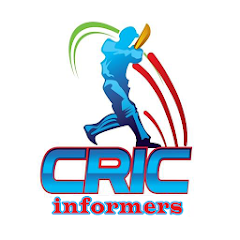The Indian cricket team’s red-ball dominance during the tenure of coach Ravi Shastri and captain Virat Kohli remains one of the most celebrated chapters in the country’s cricketing history. Under their leadership, India transformed into a formidable force, particularly in the challenging SENA (South Africa, England, New Zealand, Australia) countries, where Indian teams historically struggled.
Shastri recently reflected on this era, showering praise on Kohli’s batting prowess and leadership while also expressing optimism about the future under Shubman Gill’s captaincy. His comments, made during a Sky Sports interview, highlight the legacy of Kohli’s era and the bright prospects of India’s new generation.
Kohli’s Unforgettable Red-Ball Reign
From 2014 to 2021, when Shastri served as head coach and Kohli as Test captain, India scaled unprecedented heights in red-ball cricket, holding the No. 1 Test ranking for significant periods. Shastri, recalling this golden era, described Kohli’s batting as “unbelievable” and his leadership as transformative. “Some of the innings he played in Australia, South Africa, England, across formats were unreal,” Shastri said. Kohli’s ability to dominate attacks in hostile conditions was pivotal to India’s success, with standout performances like his 149 in Edgbaston (2018), 123 in Perth (2018), and 136 in Cape Town (2018) showcasing his mastery over pace and bounce on foreign soil.
Shastri emphasized Kohli’s role as a captain who led from the front. “I identified him as the one to lead the team, and once Dhoni had finished, he did a magnificent job,” he said. Kohli’s aggressive yet fair approach, coupled with his relentless drive to win, redefined Indian cricket. His leadership saw India achieve historic milestones, including their first Test series win in Australia in 2018-19 and competitive performances in England and South Africa. Shastri highlighted Kohli’s ability to “be in the face, play hard but play fair,” which instilled a fearless mindset in the team. This era saw India overcome their SENA jinx, with players like Jasprit Bumrah, Cheteshwar Pujara, and Rishabh Pant thriving under Kohli’s captaincy.
ICC Trophy Heartbreak
Despite their dominance, Shastri acknowledged that the team fell short in ICC tournaments, a lingering regret. India reached the final of the inaugural World Test Championship (WTC) in 2021 but lost to New Zealand. They also faced setbacks in other ICC events, such as the 2019 ODI World Cup semifinal.
“We were a little unlucky. We should’ve won an ICC trophy. In that time, we had the team to do it, but we still played some great cricket,” Shastri reflected. The absence of an ICC title does not diminish the team’s achievements, as they consistently challenged the best sides in the world, often in conditions tailored to exploit India’s historical weaknesses.
A New Era Under Shubman Gill
As Indian cricket transitions into a new phase, Shastri’s focus has shifted to Shubman Gill, who has emerged as a promising leader following the retirements of stalwarts like Rohit Sharma and Virat Kohli during the IPL. In the recently concluded Anderson-Tendulkar Trophy, a Test series pitting India against a strong opponent, Gill led a young side to a commendable 2-2 draw. His personal contribution was staggering, with four centuries that underscored his potential as a batting mainstay and captain. At just 25, Gill has already shown the composure and class needed to anchor India’s Test future.
Shastri was effusive in his praise for Gill, describing him as “regal” and predicting a long, successful career. “He’s composed, very easy on the eye, very fluent, and has the ability to play the long innings,” Shastri noted. Gill’s elegant strokeplay and ability to construct big scores mirror the qualities of Kohli in his prime, though with a distinct, graceful style. His leadership in the Anderson-Tendulkar Trophy, navigating a team without senior figures, signals his readiness to carry the baton. Shastri believes Gill’s exposure to high-pressure series will only sharpen his skills, positioning him as a cornerstone of Indian cricket for years to come.
The Legacy and the Future
The Shastri-Kohli era redefined Indian Test cricket, turning a side once vulnerable overseas into a global powerhouse. Kohli’s hunger for runs and victories, paired with Shastri’s strategic acumen, created a team that thrived under pressure. Their triumphs in SENA nations—most notably the 2018-19 and 2020-21 series wins in Australia—broke decades of precedent and inspired a generation of cricketers. While the lack of an ICC trophy remains a bittersweet note, Shastri harbors “no regrets whatsoever,” emphasizing the team’s exceptional cricket and near-misses at glory.
As India moves forward under Gill’s leadership, the foundations laid by Shastri and Kohli provide a robust platform. Gill’s early success suggests he can emulate Kohli’s ability to lead by example, blending technical brilliance with tactical nous. With a young core of players gaining experience, India’s red-ball future looks promising. Shastri’s endorsement of Gill reflects a broader optimism about Indian cricket’s trajectory, as the team builds on its past achievements while embracing new talent.
The Buchi Babu Invitational Tournament, discussed in related contexts, complements this narrative by preparing domestic players for the rigors of first-class cricket, feeding talent into the national setup. Just as Kohli honed his craft in domestic circuits before dominating globally, Gill and his contemporaries are leveraging such platforms to prepare for international challenges. Shastri’s reflections serve as a bridge between India’s illustrious past and its exciting future, with Kohli’s legacy as a benchmark and Gill as the torchbearer for the next decade.



